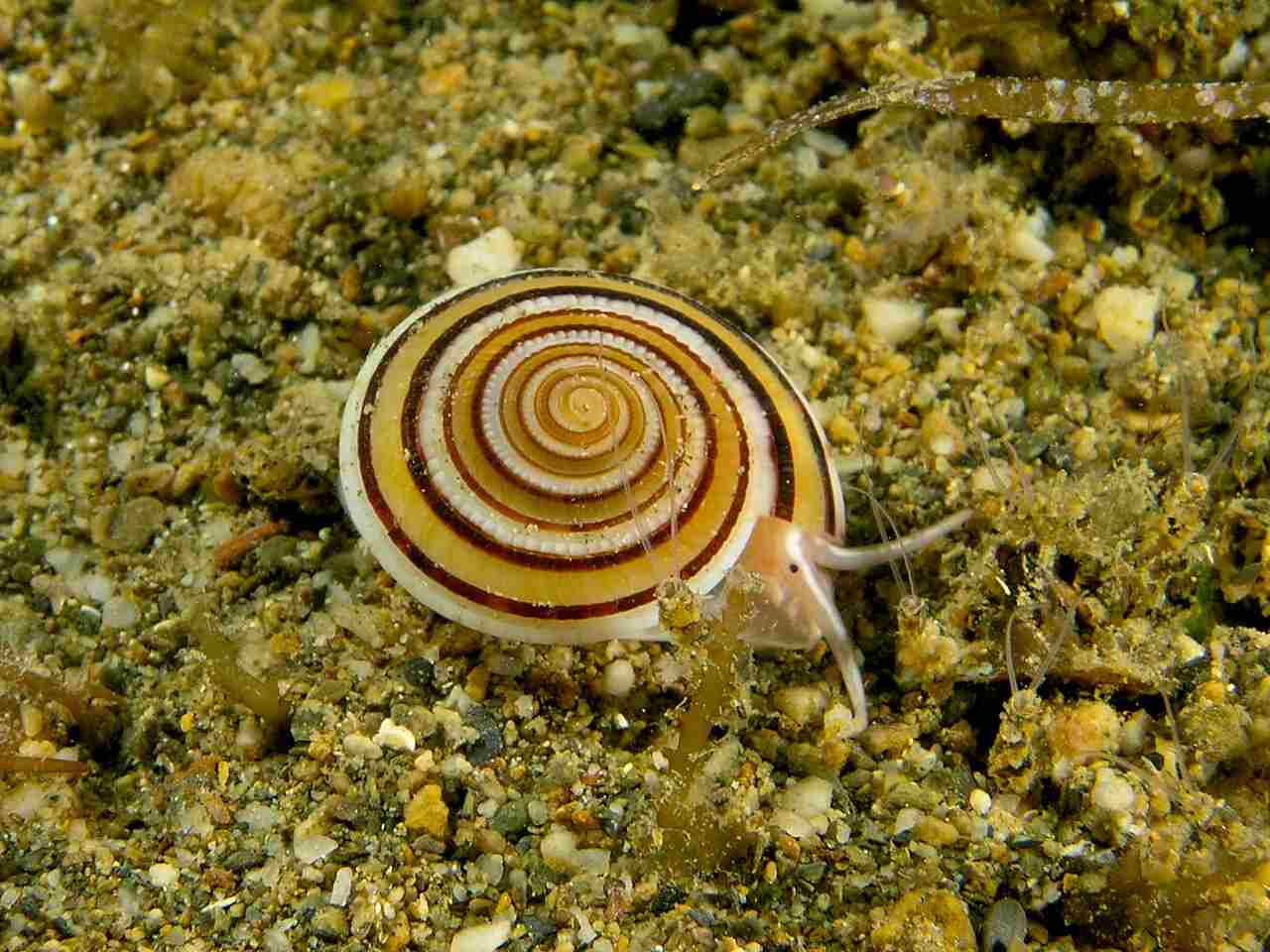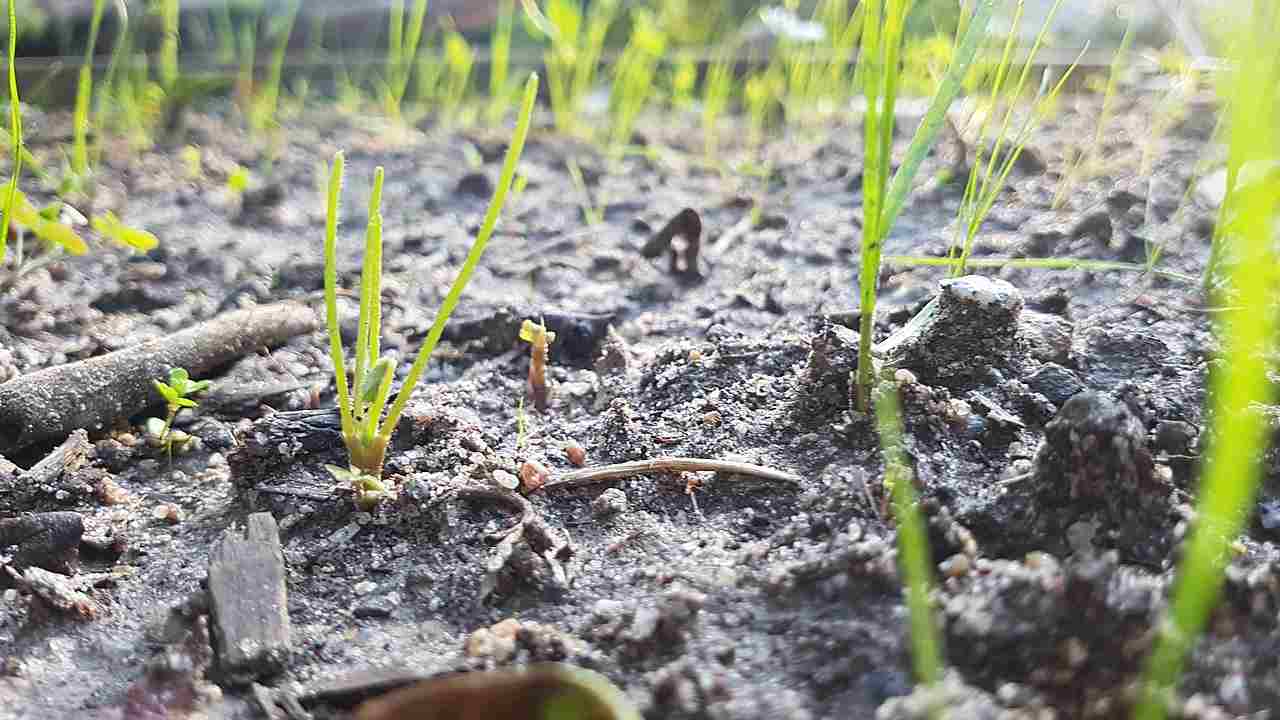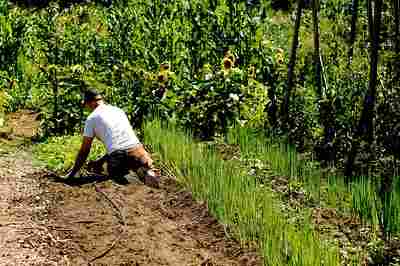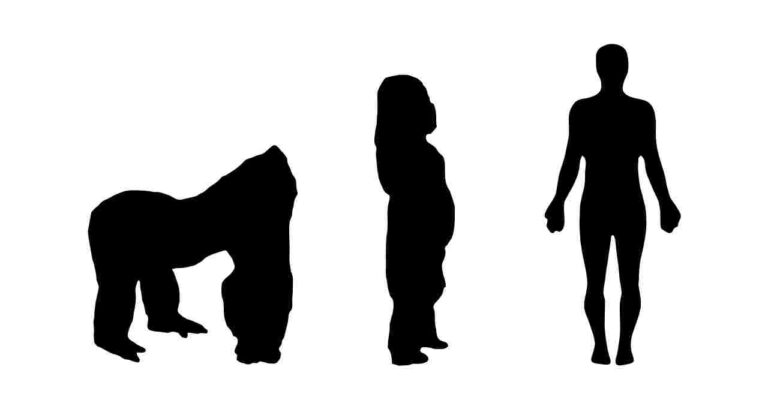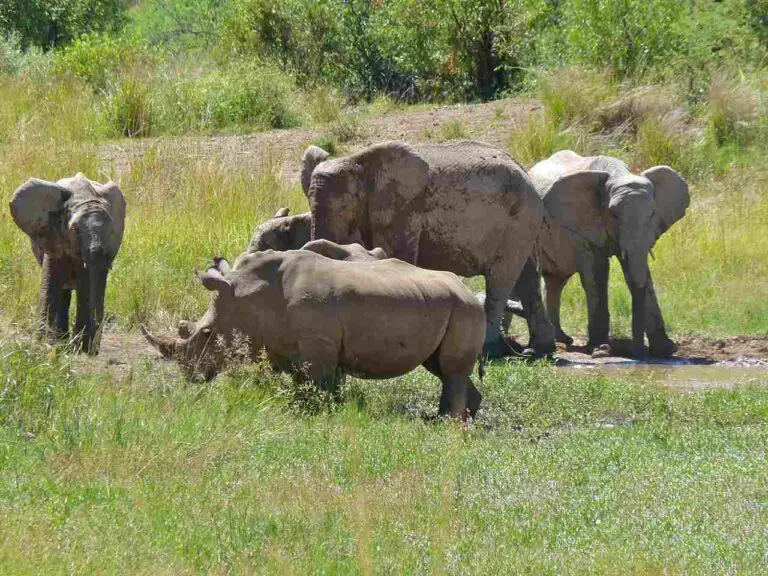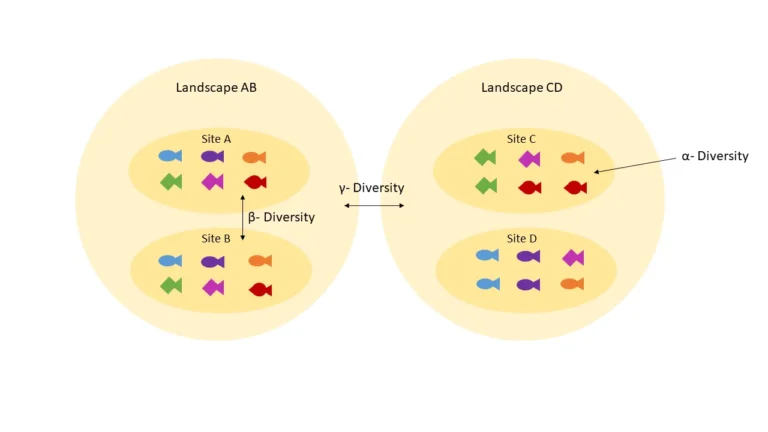What Is The Role Of Detritivores In Desert Food Webs? 15+ Answers
The role of detritivores in desert food webs includes breaking down organic matter, recycling nutrients, and maintaining soil fertility. They support plant growth by facilitating nutrient uptake and alleviating soil compaction. Detritivores also promote biodiversity, influence energy flow, and accelerate decomposition processes. By controlling the population of dead organisms and supporting microbial communities, they contribute to a more stable and sustainable desert ecosystem.
1. Decompose Organic Matter
Detritivores play a crucial role in desert food webs by decomposing organic matter. In arid environments where resources are scarce, dead plant and animal material can accumulate, posing a challenge to ecosystem health. Detritivores, such as beetles, ants, and certain species of bacteria and fungi, break down this organic matter into simpler compounds through processes like digestion and decomposition. By breaking down dead organic material, detritivores not only clean up the environment but also release essential nutrients back into the soil, making them available for use by other organisms. This decomposition process is vital for nutrient cycling in desert ecosystems, ensuring that nutrients are not lost but are instead recycled and made available for the growth and sustenance of other organisms within the ecosystem.
2. Recycling Nutrients
Detritivores are key agents in the recycling of nutrients within desert ecosystems. When they decompose organic matter, they break down complex organic compounds into simpler forms like nitrogen, phosphorus, and potassium. These nutrients are then released into the soil, providing an essential resource for plants and other organisms. This recycling of nutrients is especially critical in desert environments, where nutrient sources can be scarce and soil quality tends to be poor.
By recycling nutrients, detritivores help maintain a balanced ecosystem. This activity ensures that nutrients are not permanently lost but instead continue to circulate through the food web. Plants rely on these recycled nutrients for growth and development, and, in turn, support the herbivores and carnivores higher up in the food chain. Thus, detritivores play a pivotal role in maintaining the continuity and stability of desert ecosystems.
3. Maintaining Soil Fertility
Maintaining soil fertility is another critical function of detritivores in desert food webs. As they decompose organic matter and recycle nutrients, detritivores enhance the soil’s capacity to support plant life. In arid regions, where soil fertility is naturally low, the work of detritivores becomes especially valuable. They contribute organic matter to the soil, enriching it with decomposed plant and animal remains. This process improves soil structure, texture, and nutrient content, which are essential for plant growth.
With improved soil fertility, desert plants can grow more vigorously, leading to increased vegetation cover and enhanced habitat quality for other organisms. The presence of thriving plant life also supports soil stability by reducing erosion and maintaining moisture levels. Through these combined effects, detritivores play a significant role in creating a fertile and sustainable environment in desert ecosystems.
4. Facilitating Nutrient Uptake by Plants

Detritivores facilitate nutrient uptake by plants in desert ecosystems through their decomposition activities. By breaking down organic matter into simpler compounds, they release nutrients into the soil, making them readily available for plant roots to absorb. This process ensures that essential nutrients such as nitrogen, phosphorus, and potassium are accessible to plants, which is particularly crucial in deserts where soil fertility tends to be low.
The improved nutrient uptake by plants has a cascade effect on the rest of the ecosystem. As plants grow and flourish, they provide food and habitat for a variety of other organisms, contributing to overall biodiversity. Additionally, thriving plant life helps to stabilize soil, preventing erosion and promoting a more sustainable environment. By facilitating nutrient uptake, detritivores play a vital role in maintaining the health and productivity of desert ecosystems.
5. Supporting Plant Growth
Supporting plant growth is a critical function of detritivores in desert ecosystems. Through their decomposition of organic matter, detritivores release vital nutrients into the soil, which plants use for growth and development. In arid regions, where nutrients are often limited, this activity is essential for sustaining vegetation. By contributing to the nutrient pool, detritivores create conditions that allow plants to grow stronger and more resilient.
When plants thrive, the benefits extend throughout the desert ecosystem. Healthy vegetation provides food and shelter for herbivores, which, in turn, support carnivores higher up in the food chain. Additionally, robust plant growth contributes to soil stability, reducing erosion and aiding in moisture retention. In this way, the activities of detritivores indirectly support the overall structure and balance of the desert ecosystem, promoting a more sustainable and vibrant environment.
6. Controlling the Population of Dead Organisms
Detritivores are instrumental in controlling the population of dead organisms in desert ecosystems. By decomposing dead plant and animal matter, detritivores prevent the buildup of organic waste, which could otherwise lead to a range of ecological issues. In desert environments, where decomposition rates can be slow due to extreme temperatures and aridity, detritivores ensure that dead material is broken down efficiently and recycled back into the ecosystem.
The control of dead organism populations is crucial for maintaining ecosystem health. Without detritivores, the accumulation of dead matter could create breeding grounds for disease, attract pests, and disrupt nutrient cycling. By consuming dead organisms, detritivores not only clean the environment but also contribute to a more balanced and sustainable ecosystem. This activity helps maintain ecological stability and supports the health and well-being of other organisms in the desert food web.
7. Promoting Biodiversity
Detritivores promote biodiversity in desert ecosystems by creating a more balanced and interconnected environment. Their decomposition activities lead to a richer soil nutrient profile, enabling a broader variety of plants to thrive. This plant diversity, in turn, supports a wider range of herbivores, which subsequently sustains a greater array of predators and other higher-level consumers. The interconnectedness fostered by detritivores’ activities plays a significant role in promoting overall biodiversity.
In addition to fostering plant diversity, detritivores themselves are a source of biodiversity. A healthy detritivore population consists of various species, each with unique roles in the decomposition process. This diversity among detritivores enhances ecosystem resilience, allowing for adaptation to changing conditions and reducing the risk of ecosystem collapse. Thus, by promoting biodiversity, detritivores ensure the continued health and sustainability of desert ecosystems.
8. Regulating Carbon Cycling
Detritivores contribute to the regulation of carbon cycling in desert ecosystems. As they decompose organic matter, they release carbon dioxide into the atmosphere through respiration and microbial activity. This carbon dioxide is then used by plants during photosynthesis, effectively cycling the carbon through the ecosystem. In arid regions, where carbon cycling can be slow due to low organic matter and extreme conditions, detritivores play a critical role in maintaining the balance of this essential nutrient cycle.
The regulation of carbon cycling has far-reaching implications for desert ecosystems. A stable carbon cycle supports plant growth, which in turn sustains herbivores and predators. Furthermore, the carbon released by detritivores contributes to the global carbon cycle, influencing climate patterns and atmospheric carbon levels. By regulating carbon cycling, detritivores play a vital role in maintaining both local ecosystem health and broader environmental stability.
9. Enhancing Soil Structure
Detritivores enhance soil structure in desert ecosystems, playing a crucial role in creating a more habitable environment for plants and other organisms. As they break down organic matter, they contribute to the formation of soil aggregates—clusters of soil particles held together by decomposed organic material. These aggregates improve soil structure, providing better aeration and water infiltration, which are essential for plant roots to thrive.
Improved soil structure has numerous benefits for desert ecosystems. Enhanced aeration allows plant roots to access oxygen more easily, promoting healthier growth. Additionally, increased water retention helps plants survive in arid conditions, where water is often scarce. The activities of detritivores, therefore, lead to a more stable and fertile soil environment, supporting plant life and, consequently, the broader desert ecosystem.
10. Influencing Energy Flow in the Ecosystem
Detritivores significantly influence energy flow in desert ecosystems by breaking down organic matter and releasing nutrients that support plant growth. Plants are primary producers, harnessing energy from the sun through photosynthesis. Detritivores contribute to this energy flow by ensuring that dead organic matter is decomposed, allowing nutrients to be recycled and used by plants. This activity supports the base of the food web, ensuring a steady flow of energy throughout the ecosystem.
The influence of detritivores on energy flow has a cascading effect. As plants grow and thrive, they provide food for herbivores, which in turn sustain predators. This chain of energy flow depends on the continuous recycling of nutrients by detritivores. By influencing energy flow in this way, detritivores are instrumental in maintaining the balance and stability of desert ecosystems, ensuring that all organisms have the resources they need to survive and thrive.
11. Assisting in the Breakdown of Plant Litter
Detritivores play a crucial role in breaking down plant litter in desert ecosystems, transforming dead plant material into simpler organic compounds. In arid environments, where decomposition rates can be slow due to extreme temperatures and low moisture, detritivores speed up the process by feeding on leaves, twigs, and other plant debris. This activity prevents the accumulation of plant litter, which could otherwise obstruct plant growth and reduce soil quality.
By breaking down plant litter, detritivores create a more conducive environment for new plant growth. The decomposition process releases essential nutrients into the soil, which plants can then use to flourish. Additionally, the breakdown of plant litter helps reduce the risk of fire hazards, which can be heightened by an abundance of dry, dead plant material. Thus, detritivores play a key role in maintaining ecosystem health and sustainability by efficiently managing plant litter in desert environments.
12. Contributing to Soil Aeration
Detritivores contribute to soil aeration in desert ecosystems through their burrowing and feeding activities. As these organisms move through the soil, they create tunnels and pores, which improve the soil’s ability to retain air and moisture. This enhanced aeration benefits plant roots, allowing them to access oxygen more easily and promoting healthier growth. In arid environments, where compacted soil can limit root development and nutrient uptake, detritivores’ contribution to soil aeration is particularly valuable.
The benefits of improved soil aeration extend beyond plant health. Increased soil aeration helps maintain soil structure, reducing compaction and promoting a more balanced soil ecosystem. This activity can also enhance water infiltration, allowing moisture to penetrate deeper into the soil, which is crucial in deserts where water is often limited. By contributing to soil aeration, detritivores play a critical role in supporting the overall health and sustainability of desert ecosystems.
13. Accelerating Decomposition Processes
Detritivores accelerate decomposition processes in desert ecosystems, ensuring that organic matter is broken down efficiently. In arid environments, where decomposition can be slow due to extreme conditions, detritivores actively feed on dead plant and animal material, speeding up the breakdown process. This rapid decomposition is essential for nutrient cycling, as it releases valuable nutrients into the soil that support plant growth and other ecosystem functions.
Accelerating decomposition processes has broader implications for desert ecosystems. It helps prevent the accumulation of organic waste, which can attract pests and increase fire risks. Additionally, the faster decomposition rate facilitated by detritivores supports a more dynamic and balanced ecosystem, where nutrients are continuously recycled and made available to other organisms. By accelerating decomposition, detritivores play a key role in maintaining the health and stability of desert food webs.
14. Supporting Microbial Communities
Detritivores support microbial communities in desert ecosystems by creating a favorable environment for microbes to thrive. As detritivores decompose organic matter, they provide a source of nutrients and energy for various bacteria, fungi, and other microorganisms. This interaction forms a symbiotic relationship, where detritivores help sustain microbial communities while the microbes contribute to the decomposition process, forming a complex network of interactions within the soil ecosystem.
The support of microbial communities is crucial for desert ecosystems. Microbes play a key role in nutrient cycling, breaking down organic matter further and releasing nutrients that are vital for plant growth. A healthy microbial community also enhances soil structure, improving aeration and water retention. By supporting these microbial communities, detritivores indirectly contribute to the overall health and stability of the desert ecosystem, ensuring that the intricate web of life continues to function efficiently.
15. Alleviating Soil Compaction
Detritivores alleviate soil compaction in desert ecosystems through their burrowing and feeding activities. As they move through the soil, they create tunnels and spaces that help loosen compacted soil. This alleviation of compaction is crucial in desert environments, where soil can become hard and dense due to low moisture and high temperatures. By breaking up compacted soil, detritivores improve soil structure and create a more hospitable environment for plant roots to grow and access nutrients.
Alleviating soil compaction has additional benefits for desert ecosystems. Improved soil structure allows for better aeration and water infiltration, promoting healthier plant growth and reducing erosion risks. Moreover, the reduced soil compaction supports a more diverse range of organisms that rely on a less dense soil environment. Through their activities, detritivores contribute to a more balanced and sustainable ecosystem by creating conditions that promote the health and resilience of desert food webs.
16. Increasing Water Retention in Soil
Detritivores play a critical role in increasing water retention in desert ecosystems by improving soil structure and contributing to organic matter content. As they decompose organic material, they help create a soil environment with better water-holding capacity. In arid regions, where water is often scarce, the increased water retention provided by detritivores can be vital for plant survival and growth.
By increasing water retention, detritivores support a more resilient desert ecosystem. Plants can access the retained water more effectively, allowing them to endure dry spells and extreme temperatures. This, in turn, supports the rest of the food web by providing a stable food source for herbivores and their predators. The enhanced water retention also helps reduce soil erosion and contributes to a more balanced and sustainable ecosystem. By playing a part in retaining water in the soil, detritivores help create a healthier and more robust desert environment.
| Role of Detritivores | Description |
| Decompose Organic Matter |
Breakdown dead plant and animal material, preventing accumulation and recycling nutrients.
|
| Recycling Nutrients |
Release essential nutrients into the soil, supporting plant growth and the broader food web.
|
| Maintaining Soil Fertility |
Contribute organic matter to the soil, enhancing its fertility and structure.
|
| Facilitating Nutrient Uptake by Plants |
Release nutrients into the soil, enabling plants to absorb them more efficiently.
|
| Supporting Plant Growth |
Provide nutrients and create a favorable environment for plants to grow and thrive.
|
| Controlling the Population of Dead Organisms |
Decompose dead matter, preventing build-up and reducing the risk of disease and pests.
|
| Promoting Biodiversity |
Create a diverse environment by supporting a variety of plants and organisms.
|
| Regulating Carbon Cycling |
Release carbon dioxide into the atmosphere through decomposition, contributing to the carbon cycle.
|
| Enhancing Soil Structure |
Improve soil texture and structure, allowing better aeration and water retention.
|
| Influencing Energy Flow in the Ecosystem |
Affect the energy flow by supporting plant growth, which in turn supports herbivores and predators.
|
| Assisting in the Breakdown of Plant Litter |
Break down dead plant material, reducing litter accumulation and releasing nutrients into the soil.
|
| Contributing to Soil Aeration |
Create tunnels and pores in the soil, improving aeration and allowing better root growth.
|
| Accelerating Decomposition Processes |
Speed up the decomposition of organic matter, ensuring efficient nutrient cycling.
|
| Supporting Microbial Communities |
Provide a source of nutrients for microbes, promoting a healthy microbial ecosystem.
|
| Alleviating Soil Compaction |
Loosen compacted soil through burrowing and feeding activities, improving soil structure.
|
| Increasing Water Retention in Soil |
Enhance soil structure and organic matter content, leading to increased water retention in the soil.
|



